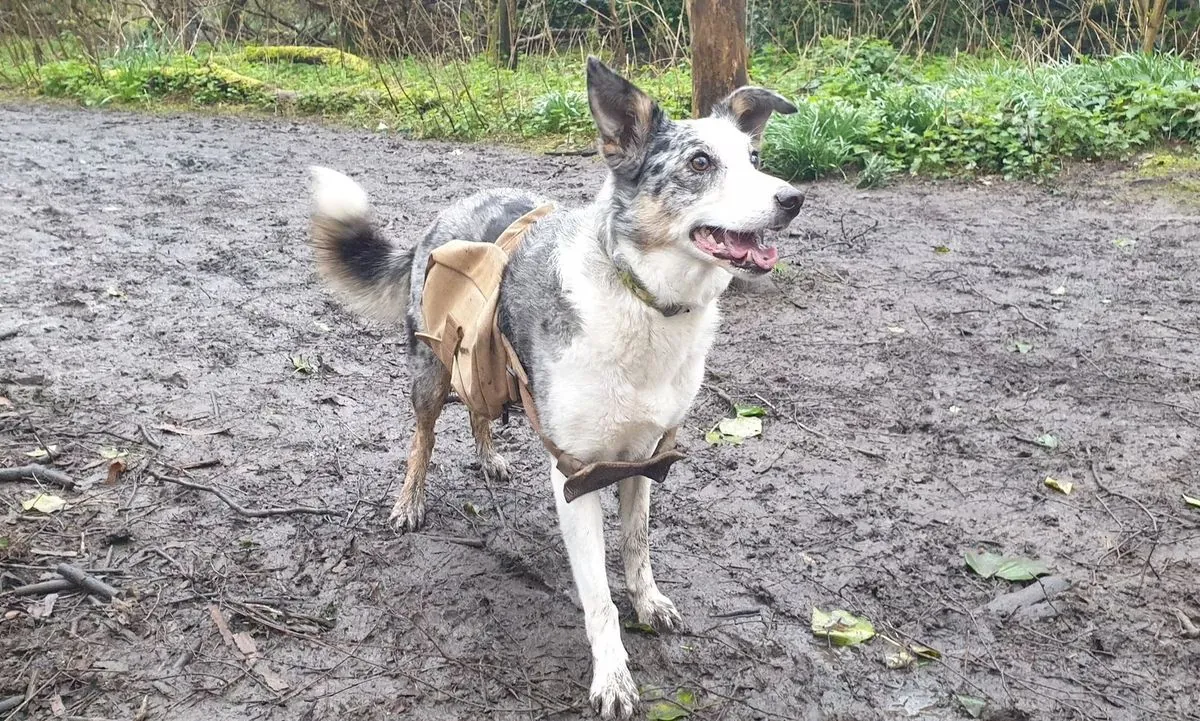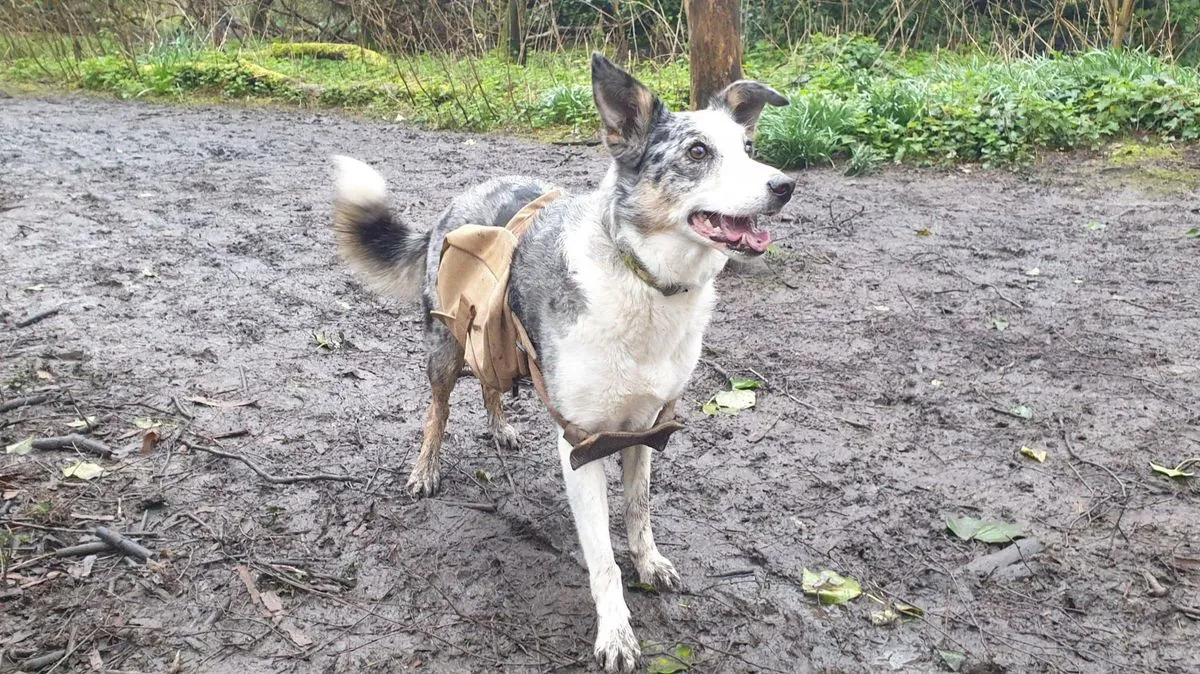Dogs Turn Seed Spreaders in Innovative Lewes Nature Reserve Project
In Lewes, England, dogs are helping restore a degraded nature reserve by wearing seed-filled backpacks while running free. This unique approach mimics the historical role of wolves in seed dispersal.

In a novel approach to ecological restoration, the Nature Reserve in Lewes, England, has implemented an innovative solution to revitalize its degraded woodland. The project, which began in March 2024, involves allowing dogs to run off-leash while wearing specially designed backpacks filled with native wildflower and grass seeds.
Dylan Walker, a wildlife manager in Lewes, explained the rationale behind this unique initiative: "Our urban nature reserve was being loved to death. The native flora had disappeared after years of heavy use, leaving the area sparse and over-trodden." This 25-acre reserve, part of an old railway yard reclaimed by nature, is managed by the Lewes Railway Land Wildlife Trust, established in 1988.
The trust's ingenious plan draws inspiration from the historical role of wolves in seed dispersal. Wolves, which disappeared from the UK in the 18th century, once played a crucial part in forming new plant colonies as they roamed vast distances, carrying seeds in their fur. This natural process, known as zoochory, is now being simulated by domestic dogs.
Barbara Haydon, one of the participating dog owners, shared her experience: "It was wonderful to see the dogs contributing to the environment just by being themselves. My golden retrievers, Frida, Lille Venn, and Gracie, thoroughly enjoyed the freedom to race around the woodland."

The project has garnered significant community interest and media attention, with the BBC covering the efforts of the dozen participating dogs. Helen Meade, CEO of the Railway Land Wildlife Trust, emphasized the dual purpose of the initiative: "We aimed to quickly rejuvenate the entire site while sparking people's imaginations."
Five months into the project, the results are promising. Walker reported, "We're seeing early germination, with small green shoots appearing across the forest floor. By next year, we expect to see flowering plants."
This innovative approach not only aids in ecological restoration but also provides a positive outlet for the local dog-walking community. Cressida Murray, owner of an energetic cocker spaniel named Bertie, expressed her enthusiasm for the project: "I thoroughly enjoyed being part of this initiative that mimics the seed-spreading behavior of ancient wolves."
The success of this program has led to plans for its continuation. Walker stated, "We're going to try it again this fall and hope to keep it going for a couple of years."
Lewes, a town of about 18,000 residents, is known for its rich history and natural surroundings. Situated within the South Downs National Park and along the River Ouse, it provides an ideal setting for such ecological initiatives. The town's commitment to environmental conservation is further exemplified by this creative approach to habitat restoration.
As the project progresses, it not only contributes to the revival of native flora but also educates the community about the historical role of wolves in shaping ecosystems. This innovative use of dogs as seed dispersers showcases how modern conservation efforts can draw inspiration from natural processes of the past, creating a unique blend of history, ecology, and community involvement.
"We couldn't be more pleased. Our plant life is coming back."


































